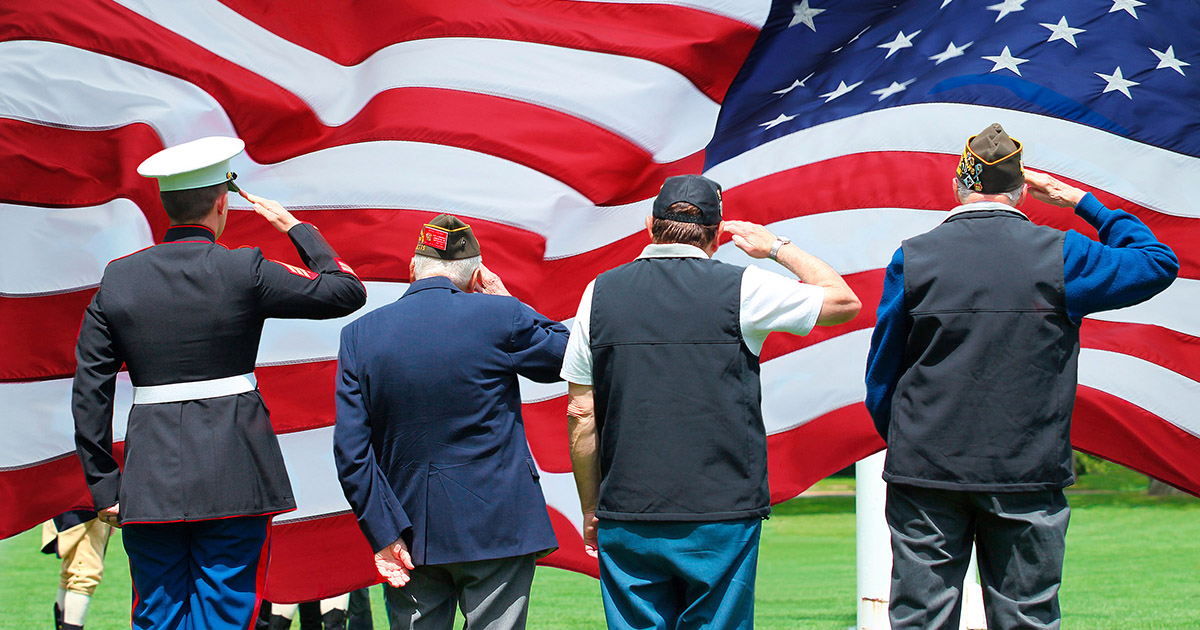Article by Gwen Jones, Department of Family Services
(Posted 2023 November)

 The U.S. Department of Veterans Affairs (VA) seeks caregivers to join the Medical Foster Home Program. A Medical Foster Home is a private, residential home that provides veterans an alternative to nursing home care. In a Medical Foster Home, a live-in caregiver provides 24-hour supervision and personal assistance for one to three veterans who require nursing home level of care. The care provided includes medical and mental health care, food preparation, spiritual support, and recreational activities.
The U.S. Department of Veterans Affairs (VA) seeks caregivers to join the Medical Foster Home Program. A Medical Foster Home is a private, residential home that provides veterans an alternative to nursing home care. In a Medical Foster Home, a live-in caregiver provides 24-hour supervision and personal assistance for one to three veterans who require nursing home level of care. The care provided includes medical and mental health care, food preparation, spiritual support, and recreational activities.
Medical Foster Homes give veterans an alternative to a traditional nursing home care setting, offering a smaller, community-based, family setting in a safe environment. This option is often more affordable than long-term, institutionalized care because Medical Foster Homes are a private pay option for veterans. The veteran pays the caregiver a monthly fee that is determined prior to placement in the home. The VA provides home-based primary care services to veterans living in Medical Foster Homes.
To qualify for the Medical Foster Home Program, a caregiver must:
- Complete an application and be interviewed by the Medical Foster Home Program Coordinator and other staff.
- Be at least 21 years of age and demonstrate financial stability.
- Undergo a criminal background check and provide three references.
- Offer a pleasant, home-like atmosphere within their residence while providing hands-on care to veterans with high-level care needs.
- Ensure that they, or an approved relief caregiver, are present and available to provide 24/7 care and supervision.
- Allow access to their home for monthly, unannounced visits by the Medical Foster Home coordinator.
In addition, a caregiver must own or rent their house, and it must be their primary residence. There should be enough space to care for one to three veterans with separate bedrooms. The home must be inspected by a VA multidisciplinary team and the home and caregiver must comply with all state and local licensure requirements and regulations. Finally, the residence must be located within 30 miles of the VA medical center.
Benefits to operating a Medical Foster Home include assistance and oversight by the VA as well as ongoing caregiver education. The Medical Foster Home coordinator has frequent contact with caregivers and assists with assessing for caregiver stress and burnout and providing on-going support and advocacy.
To learn more about the Medical Foster Home Program, visit va.gov/Geriatrics/pages/medical_foster_homes.asp
Caregivers can learn more and apply for the program by calling Nina Davis, Medical Foster Home Coordinator for the Washington, D.C. area, at 202-573-5577 or by emailing nina.davis@va.gov.
This article is part of the Golden Gazette monthly newsletter which covers a variety of topics and community news concerning older adults and caregivers in Fairfax County. Are you new to the Golden Gazette? Don’t miss out on future newsletters! Subscribe to get the electronic or free printed version mailed to you. Have a suggestion for a topic? Share it in an email or call 703-324-GOLD (4653).

